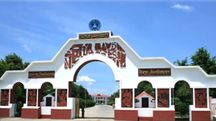Traditional Assamese breakfast ideas to pump up your day with positivity
Sometimes you don't even need to cook. Simply do it. Yes, today's traditional Assamese breakfast, Jolpaan, does not require any preparation.
 Assamese breakfast ideas
Assamese breakfast ideasThe morning breakfast routine is one of the busiest part of the entire meal chart. The usual meal where almost all of us tend to skip, owing to our fast city life is the breakfast. Yet, one shouldn’t compromise with their health and instead look for a wholesome, simple, quick and absolutely ‘Maa ka Hath ka Khana’ option that is equally delish too! We have sorted below a list of Assamese ‘stomach and heart happy’ breakfast options that you all should try to fuel up your mornings.
Sometimes you don't even need to cook. Simply do it. Yes, today's traditional Assamese breakfast, Jolpaan, does not require any preparation. Jolpan is a snack, breakfast, or mini-meal that typically consists of various forms of rice such as ground roasted rice (handoh), boiled in its husk and flattened (chira/aval), puffed rice (aakhoi), and a variety of glutinous rice found in Assam known as bora saul, kumol saul.
Seera Doi
Seera Doi is a form of Jolpaan (breakfast/snack) that Assamese like. It is beaten rice served with curd or cream and jaggery. While in Assam, try this slice of heaven on a platter.
Kumol Saul
Kumol Saul is an indigenous kind of rice grown primarily in Assam's lower areas and is typically eaten with curd or yogurt. This miracle rice just received the Geographical Indications (GI) label. Kumol Saul does not need to be cooked; it is just soaked in water, mixed with curd or milk, and served with jaggery or sugar.
Bora Saul
Immunity Booster Assamese sticky rice is high in protein and micronutrients. Sourced from small-scale organic growers in Assam. Bora rice has a lot of carbohydrates, protein, vitamins, and minerals (Anwar, et al., 2011). Diabetes is controlled, chronic illnesses are prevented, inflammation is reduced, and digestion is improved. Pregnant women, persons with heart problems.
Pointa Bhaat
Let me tell you, it's not the fancy parathas, dosas, or idlys that you generally see on an Indian table. It is the dish that represents the Indian people's genuine, raw essence and individuality. Fermented rice with curd, chilies, and mashed potatoes is a plain man's cuisine. Rice allowed to ferment overnight by adding water and eaten the next day with mustard oil and green chilies is a common sight in rural Assam households.
Poita Bhat with Alloo Pitika
Pitika is an Assamese breakfast made of slightly fermented rice, curd, chilies, and onions. In a rural Assamese family, it is served with mashed potatoes and dried fish.
Khola Sapori Pitha
Deriving its name from the earthenware pan which is open – Khola (Khola in Assamese), the Khola Sapori pitha is prepared from rice flour, in which you add a little bit of salt, water and make a runny batter. If you wish you can add chopped chilli or chopped onions or julienned ginger to get that little spicy kick to your pitha. After religiously mixing the batter to its right consistency, you can add a tablespoon of oil into the pan. Then you can pour 1 big ladle of batter onto the medium hot pan and slowly rotate the batter so that you get thin layer of pitha. You will slowly see bubbles appearing on the pitha which is an indication that your pitha is ready to be served hot with vegetables or stuff with coconut and gur and eat like a true Axomiya local.
Keteli Pitha
A delectable symphony of fragrant rice, grated coconut and aromatic jaggery, this wholesome dish is a unique blend of Assam’s simplistic lifestyle infused with love and redolent of the earthy Assam. Prepared from salted rice floor steamed on the mouth of a small pitcher or a kettle and grated coconut added onto its layer to add a sweet kick once you take a bite, the keteli pitha reminds us the warmth of our mother’s homely cooking, as well as our Assamese roots that is so vibrant and yet simple to its core.
Copyright©2026 Living Media India Limited. For reprint rights: Syndications Today









